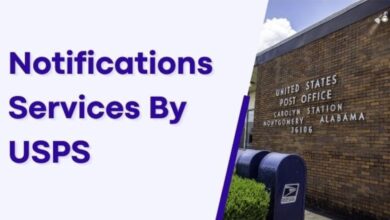Great Lakes Student Loan: Pros, Cons, and How to Make it Work for You

Welcome to our blog post on Great Lakes Student Loan! Are you a student looking for financial assistance to pursue your dreams of higher education? Well, you’ve come to the right place. In this article, we will explore the proses and cons of student loans and provide tips on how to make them work for you. Whether you’re considering taking out a loan or already have one with Great Lakes Student ,Loan we’ve got you covered. So let’s dive in and discover how to navigate the world of student loans successfully! Read more
What are the pros and cons of Great Lakes Student Loan loans?
Pros: 1. Access to Education: Great Lakes Student Loan provide access to education for individuals who may not have the financial means upfront. They allow students to enroll in colleges and universities, pursue their desired degree programs, and improve their career prospects. 2. Flexible Repayment Options: Many student loan providers offer flexible repayment plans based on the borrower’s income level. This can help ease the burden of monthly payments, especially during the early stages of one’s career when income may be limited. 3. Establishing Credit History: Taking out a student loan and making regular payments can help establish a positive credit history, which is crucial for future financial endeavors such as purchasing a car or home. Read more
Cons:
1. Accumulation of Debt: The most obvious drawback of student loans is that they result in debt accumulation. Depending on the amount borrowed and interest rates, repayments can take years or even decades, impacting your finances well into adulthood. 2. Interest Accrual: Unlike other types of loans, interest often begins accruing immediately or shortly after disbursement with student loans. This means you’ll end up paying more than what you initially borrowed over time. 3. Limited Financial Freedom: Student loan repayments can significantly impact your ability to save money or invest in other areas such as starting a business or buying property. While student loans open doors to educational opportunities that may otherwise be unattainable for some individuals, it’s essential to consider both the benefits and drawbacks before committing to them Read more.
How to make student loans work for you
Student loans can be a valuable tool for financing yours education, but they also come with their fair share of challenges. However, by taking a proactive approach and making smart decisions, you can make student loans work for you. First and foremost, it’s crucial to create a budget and stick to it. This will help you understand how much money you have available some month to put towards your loan payments. Prioritize your spending and cut back on unnecessary expenses to free up more funds for repayment. Additionally, consider making extra payments whenever possible. Even small amounts can add up over time and reduce the overall interest you’ll pay on your loan. Explore potential sources of additional income or look for ways to save money in order to make these extra payments. It’s also important to stay informed about the terms of your loan agreement. Understand the interest rate, repayment options, and any other relevant details so that there are no surprises down the road. You may even want to explore refinancing options if it could potentially lower your monthly payment or decrease the total amount paid over time. Don’t hesitate to seek assistance if you’re facing financial hardship or struggling with repayment. Contacting your loan servicer can help you explore alternatives such as a deferment or forbearance if needed. By being proactive in managing your student loans and staying committed to repayment strategies like budgeting, making extra payments when possible, staying informed about loan terms, and seeking assistance when needed; you can navigate through this financial obligation successfully! Read more
What to do if you have trouble making payments on your student loans
When it comes to student loans, sometimes life doesn’t always go according to plan. And if you find yourself in a situation where you’re having trouble making payments on your Great Lakes, student loan, don’t despair – there are steps you can take to navigate through this challenging time. The first thing you should do is reach out to your loan servicer. They are there to help and may be able to provide options such as deferment or forbearance, which temporarily allows you to pause or reduce your loan payments. It’s important not to ignore the situation and communicate with them as soon as possible. Additionally, consider exploring income-driven repayment plans. These plans adjust your monthly payment based on your income and family size, potentially making it more manageable for you during times of financial hardship. Another option worth considering is refinancing or consolidating your loans. This involves combining multiple loans into one new loan with different terms and possibly a lower interest rate. However, keep in mind that refinancing federal loans will result in the loss of certain benefits such as access to income-driven repayment plans and forgiveness programs. If all else fails and you still cannot make ends meet, seeking assistance from a credit counselor may be beneficial. They can provide guidance on managing debt and creating a budget that works for your circumstances. Remember, dealing with financial difficulties is never easy but taking proactive steps towards finding solutions can alleviate some of the stress associated with student loan payments. Stay informed about available resources and seek support when needed – there are options out there that can help lighten the burden while keeping you on track toward achieving financial stability. Read more
Conclusion
Student loans can be a valuable tool for obtaining higher education and pursuing your dreams. They provide the financial support needed to cover tuition fees, books, and living expenses. However, it is important to carefully consider the pros and cons before taking on debt. The pros of student loans include accessibility to education when other funding options may not be available, the potential for increased earning power with a degree, and the opportunity to build credit history. On the other hand, there are also cons such as accumulating interest over time and potentially facing difficulties in repayment after graduation. To make student loans work for you, it’s crucial to have a solid plan in place. Start by researching different loan options and understanding their terms and conditions. Calculate how much you really need to borrow by considering all costs associated with your education. Create a budget that allows you to live within your means while setting aside funds for loan repayments. Once you’ve obtained your student loan, focus on making timely payments each month. Consider signing up for automatic payments or exploring income-driven repayment plans if necessary. Explore opportunities for scholarships or part-time jobs that can help offset some of your educational expenses. If you ever find yourself struggling with loan repayments, don’t panic! Reach out to your lender as soon as possible to discuss alternative payment arrangements or explore options like deferment or forbearance if applicable. Remember that managing student loans requires responsibility and careful planning but doesn’t have to be overwhelming. By staying informed about your loan details, being proactive in managing your finances during school years and beyond graduation; you can navigate through this financial journey successfully! So weigh the pros and cons of Great Lakes Student Loan carefully before deciding whether it’s right for you – remember that every individual’s situation is unique!



